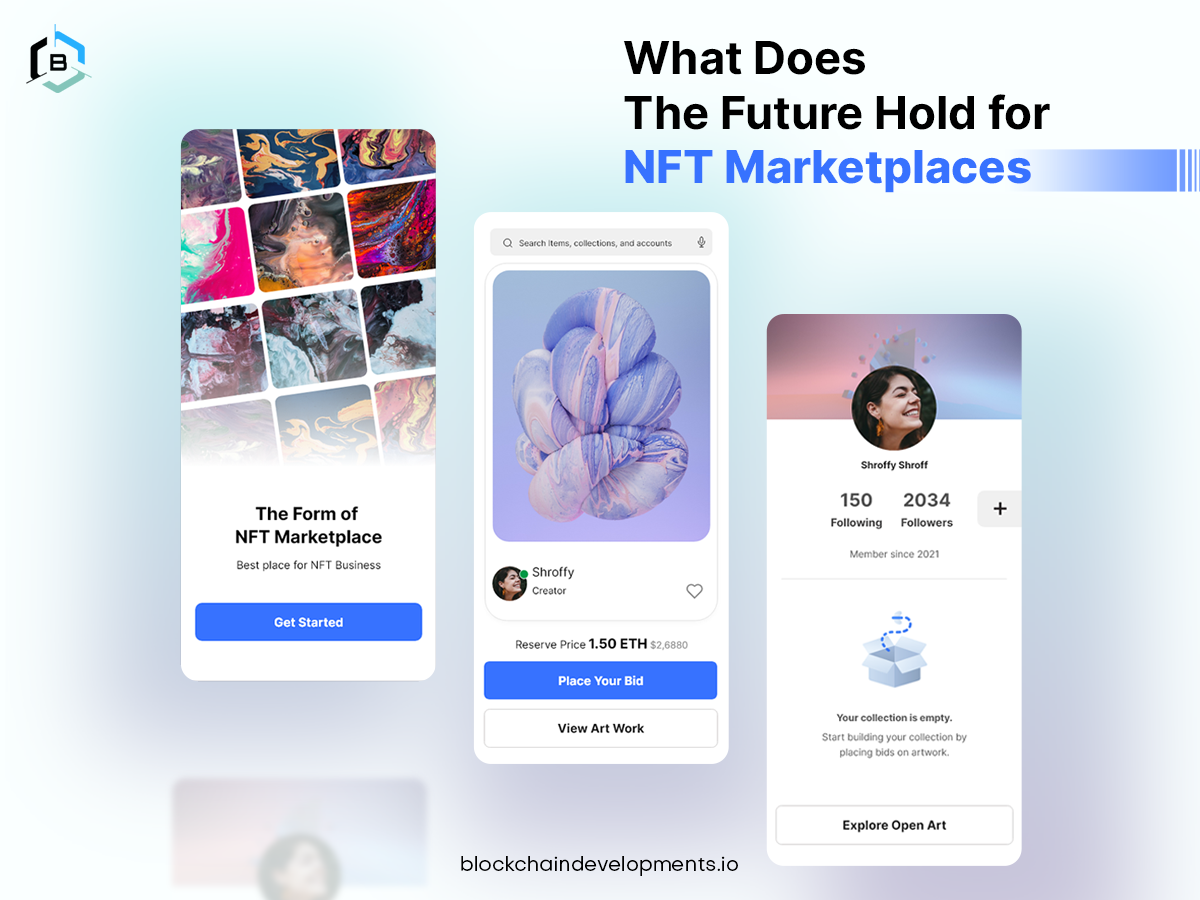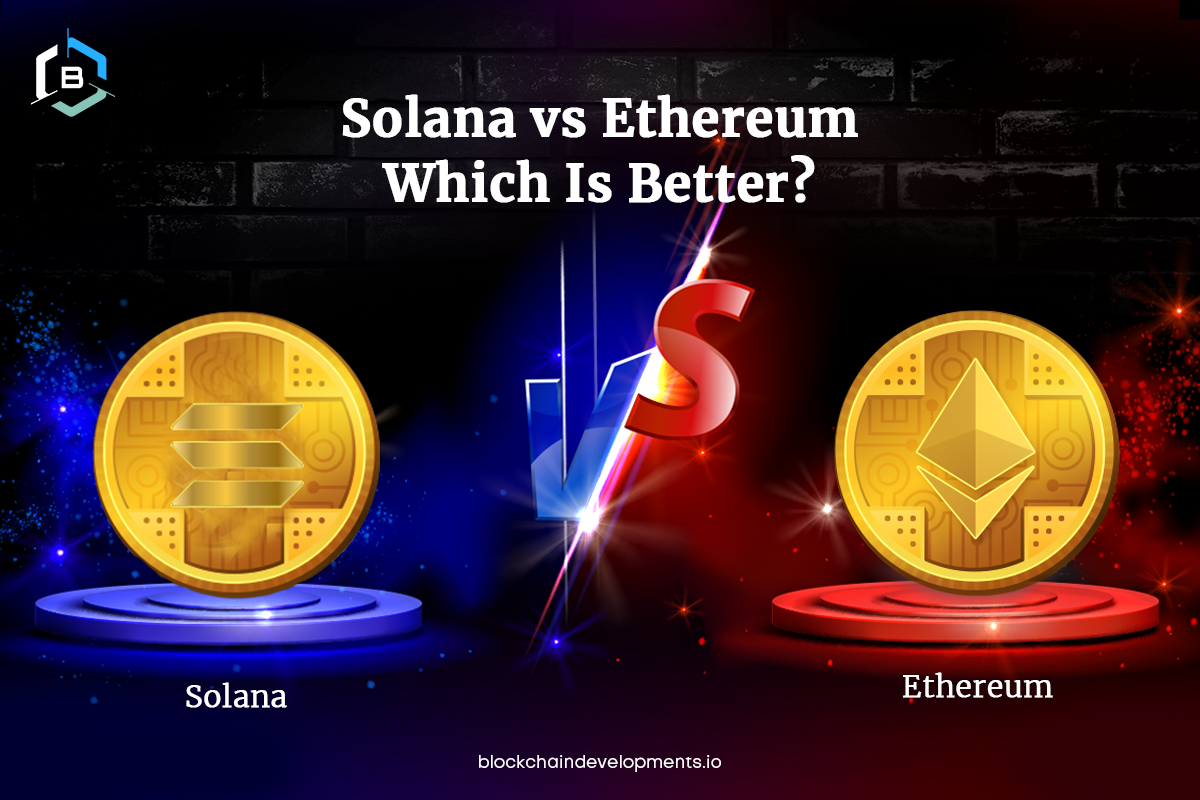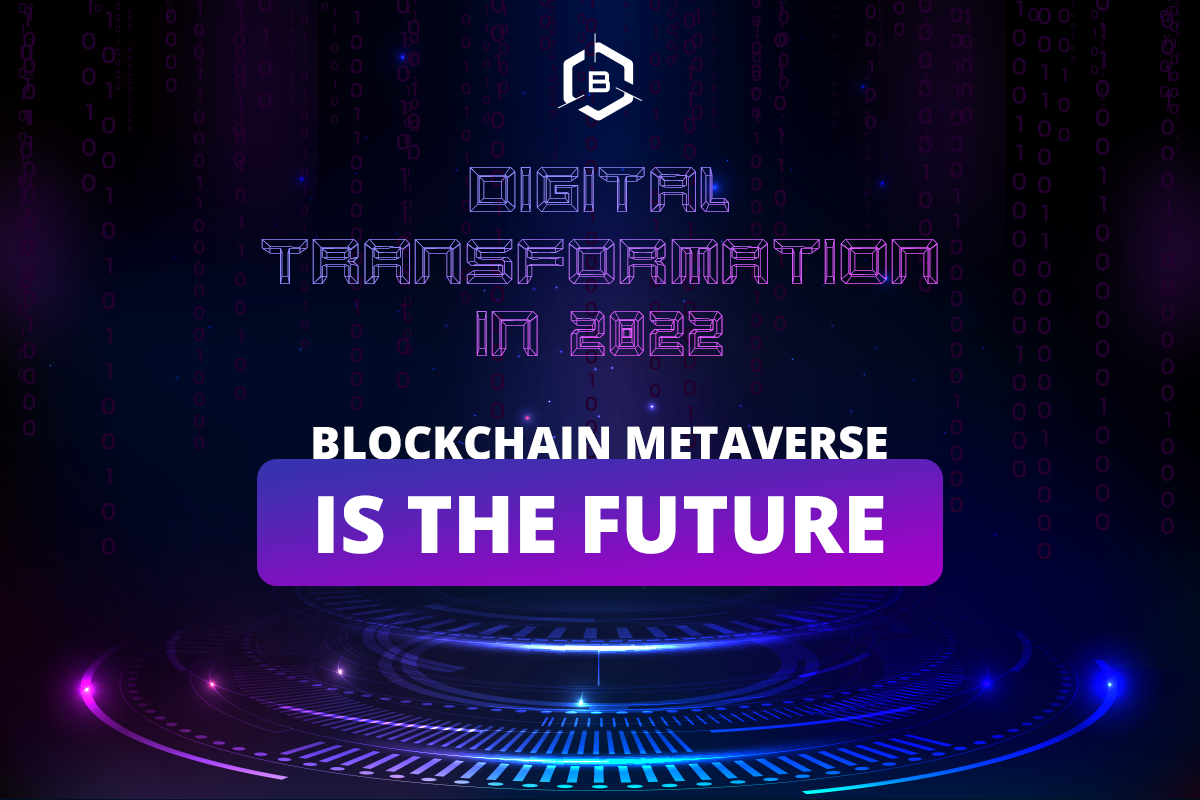A digital platform for buying and selling NFTs is known as an NFT marketplace. NFTs sites enable users to sell their NFTs to other users in exchange for cryptocurrencies or cash, as well as store and display them. Some non-fungible token marketplaces allow users to mint their non-fungible tokens directly on the website and they can transfer them from one party to another.
The increasing popularity of NFTs may be greatly facilitated by NFT marketplaces, which constitute a highly important component of NFT trading. It appears that trading on next-generation NFT markets is about to become a reality as a result of platforms shifting to scalable, affordable solutions and more well-known firms entering the market. This has led to an increase in the number of NFT Marketplace Development Services.
Here are the top trends in the NFT Marketplace:
- Multi-chain NFT Marketplace:
To reach a larger audience, multi-chain markets use different blockchains. NFT marketplaces built on more affordable and swifter networks have significantly increased in recent times. Multi-chain non-fungible token marketplace development is more expensive, but it has gained popularity because of its smooth connectivity, distinctive features, and affordable gas prices.
- Gaming NFT Marketplace:
The in-game market has existed since the NFT boom. However, additional play-to-earn games have recently begun to appear. Some of the top marketplaces include Sorare, Axie Infinity, and F1 Delta Time. They have generated interest in the market and allow consumers to earn rewards that are simple to monetize. Typically, this gaming NFT marketplace offers rewards to gamers in the form of Bitcoin or in-game items like avatars, guns, energy boosters, vehicles, and many more. On the NFT game marketplace, players can simply buy and sell their in-game assets for fair prices.
- Metaverse-based NFT Marketplace:
Since the digital giant Meta (previously Facebook) declared its plans to enter the virtual world, metaverses have gained a lot of public attention. There are many metaverse-based games, including Sandbox and Decentraland, which provide a wonderful decentralized experience by providing a platform devoid of rules made by any central authority. These markets have high-texture visuals that give off a realistic sensation, and the platforms include tools and algorithms for boosting the resolution of the graphics. Additionally, they offer an improved storage medium that enables customers to have a variety of assets with the same efficiency.
- Cross-chain NFT Marketplace:
This marketplace enables users to collaborate across numerous blockchains, assuring interoperability and growing their user base. The tamper-proof aspect of NFT is combined with the cross-chain functionality to increase the validity of trades and user trust. Having numerous blockchains improves liquidity because buyers and sellers are always active on all of the blockchains at any given time. Additionally, customers can utilize any device to work throughout the cross-chain non-fungible token marketplace without experiencing any performance concerns. It has a storefront, which is why it resembles an e-commerce platform quite a bit. It also has trendy features and information to provide comprehensive details of the NFTs, including extra details and procedures to validate the NFTs’ uniqueness. Along with this, it contains a search bar to make it simple for visitors to find what they’re looking for, along with several filters to make navigation simple.
- Celebrity NFT Marketplace:
NFTs first came to popularity in the second half of 2021 as a result of social media posts by entrepreneurs and celebrities flaunting their new digital assets. Consequently, a few celebrities who saw the potential of NFTs decided to launch their marketplaces.
NFT Marketplace Future:
The most valuable assets in the blockchain era are gathered in NFT Marketplace. Despite being a relatively new technology, NFTs are rapidly establishing themselves as the norm. The finest NFT markets give both buyers and creators the best possibilities.
- Future Galleries:
They could function as the future’s art galleries and entertainment centers with individualized and unique experiences by incorporating AR and VR components.
- Democratization of the arts:
By enabling independent producers and artists to receive fair payment and acknowledgment for their abilities, NFT marketplaces are democratizing art.
- Individual Identity:
NFTs focus on people’s inherent need to possess and use their possessions to express their identities. NFT Marketplace Services will become more frequent as collectibles and pieces of art are released in more sophisticated ways.
Our dedicated team of knowledgeable blockchain and NFT developers will step in to assist you with developing your non-fungible token marketplace. No matter what your goals and ideas are, with NFT Marketplace Development, you can emerge as the upcoming sensation in the fields of art and entertainment.







